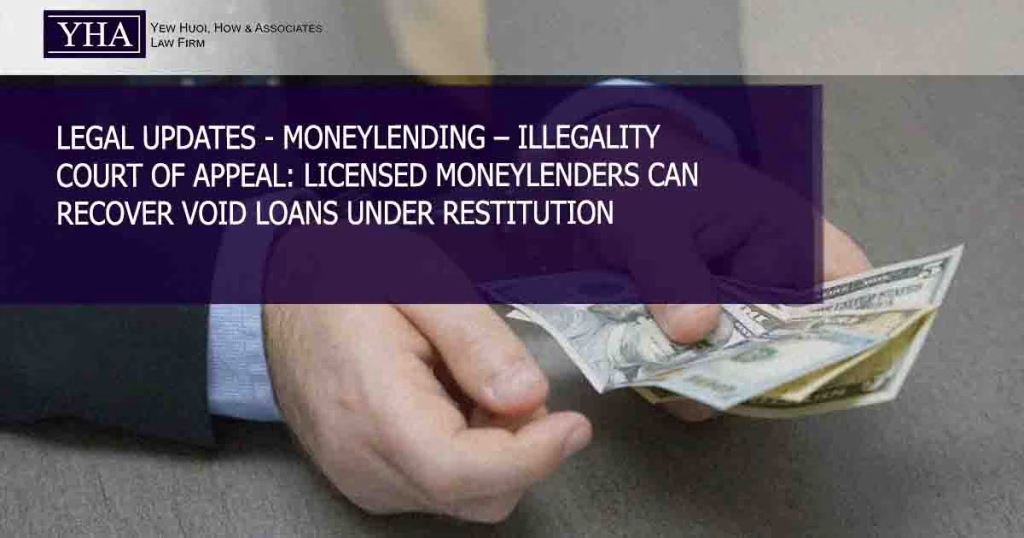1. Summary and Facts
In Golden Wheel Credit Sdn Bhd v Dato’ Siah Teong Din [2025] MLJU 2245, the Court of Appeal examined whether a licensed moneylender can recover loan monies under restitution (Section 66 Contracts Act 1950) when its moneylending agreements are void for non-compliance with the Moneylenders Act 1951 (“MLA 1951”).
Golden Wheel Credit, a licensed moneylender, entered two moneylending agreements with Dato’ Siah Teong Din in July and August 2018, totaling RM3.5 million at an interest rate of 18% per annum.
The borrower instructed the lender to disburse the funds to a property company, Instant Bonus Sdn Bhd, of which he was a director. Instant Bonus later went into liquidation, and only RM40,000 was repaid.
Hence, the lender claims for restitution rather than enforcement of the loan agreements, which it admitted were void due to non-compliance with MLA 1951.
2. Legal Issues
• Whether the Moneylending Agreements which are void and unenforceable under the MLA 1951 are also illegal.
• Whether the appellant is entitled to recover restitution of the unpaid principal under Section 66 of the Contracts Act 1950.
3. Court’s Findings
• The Court clarified that not all void agreements are illegal.
• Court applied the “Detik Ria Guidelines”, which require assessing the centrality of illegality and the proportionality of denying remedy.
• The Court of Appeal held that Golden Wheel’s agreements were void but not illegal.
• Section 66 allows restitution for benefits received under void agreements.
• The court ordered the respondent to repay the appellant the sum of RM3,383,500 with interest at 5% per annum from the date of judgment, and cost of RM50,000.
• The court held that denying restitution would result in unjust enrichment.
4. Practical Implications
This judgment established an important legal precedent clarifying that non-compliance with the MLA 1951 does not necessarily render a loan agreement illegal:
• Particularly when the moneylender is licensed and the breach is technical in nature.
• The purpose of MLA 1951 was to curb unlicensed and exploitative moneylending, not to penalize licensed moneylenders for procedural errors.
• It also affirmed that restitution under Section 66 CA 1950 is available even in cases of void contracts, provided that granting such relief is consistent with proportionality and public policy.

